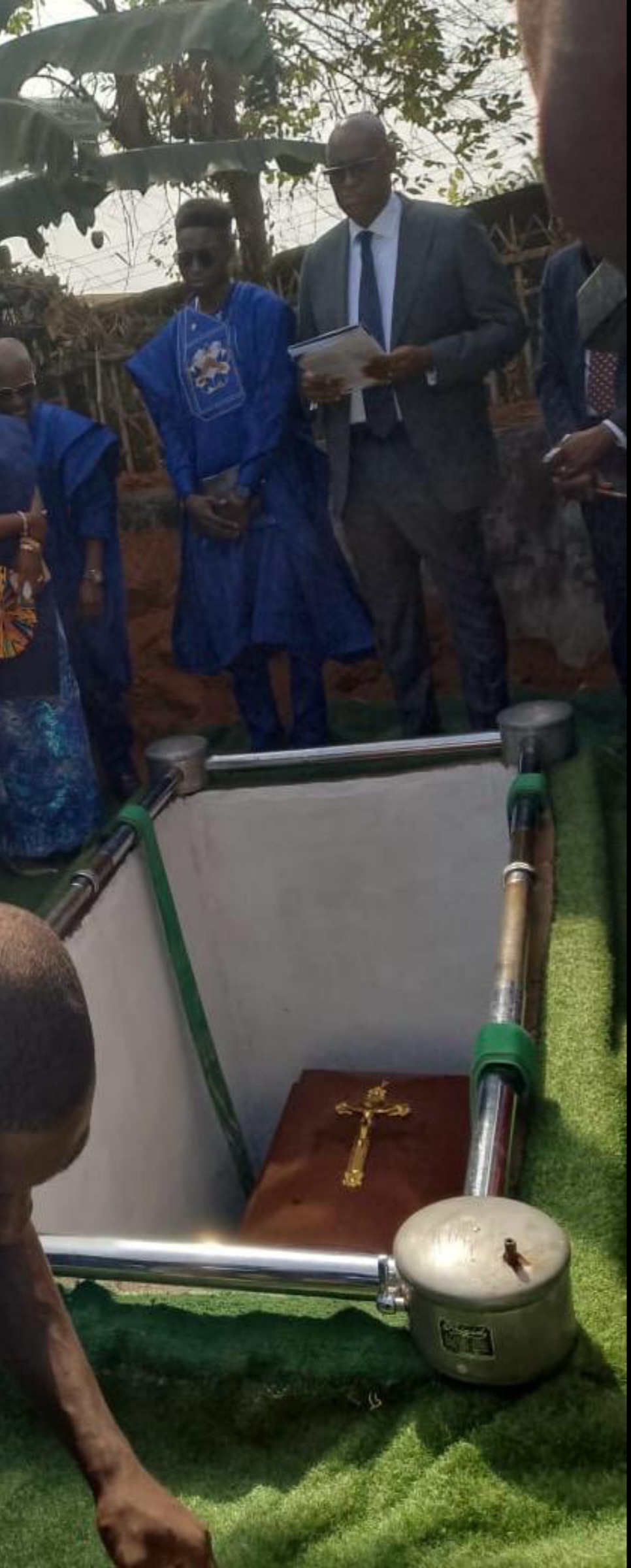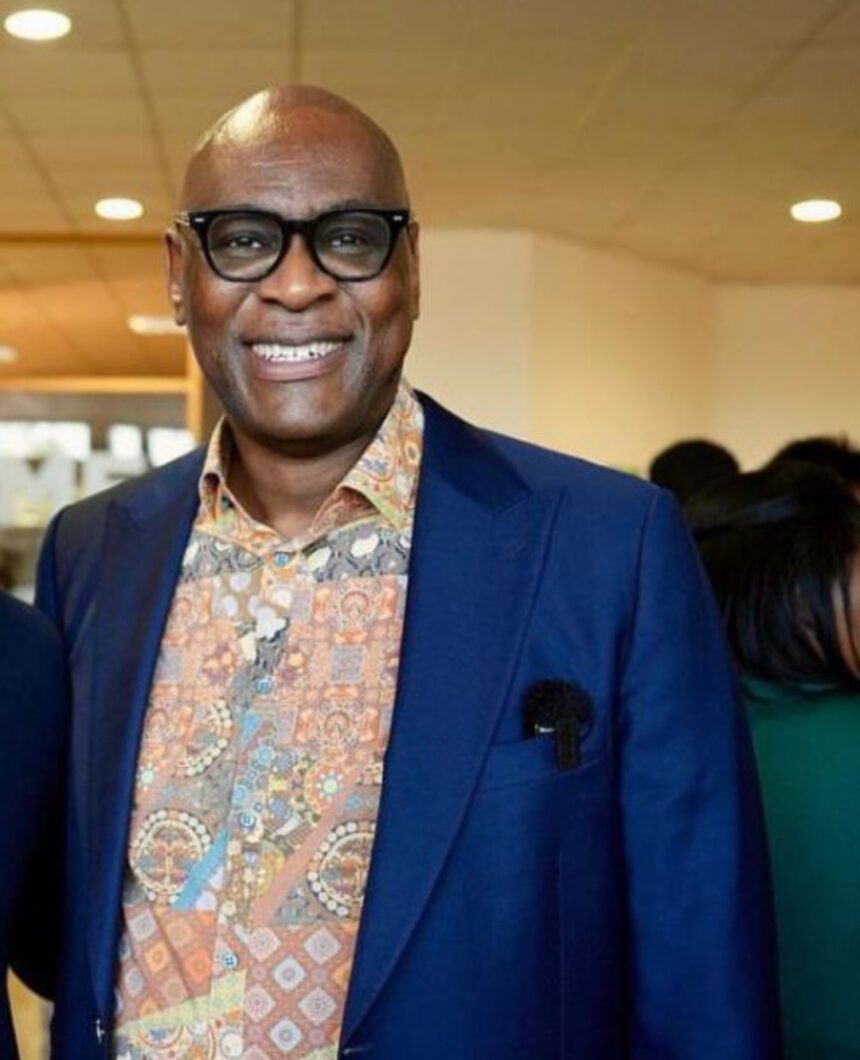● A Shepherd’s Broken Vow: Calls for Accountability Grow as RCCG Pastors Overstep Boundaries
● A Family Fractured as Church Authority Faces Scrutiny
Once a shepherd tasked with guiding the faithful toward peace, Pastor Agu Irukwu now stands accused of being the architect of discord in the Akinboro family, a once-united kinship now splintered by a funeral mired in controversy. His decision to officiate the burial of the late Chief Gabriel Olumuyiwa Akinboro—against his earlier vow to abstain until family disputes were resolved—has thrown the family into deeper chaos.
Who would have thought that beneath the gilded robes of his spiritual authority breathes a pastor ill-suited to douse the storms of discord ravaging his flock. In the unfolding conflict of the Akinboro family feud, the Redeemed Christian Church of God (RCCG) Pastor Irukwu finds himself at the eye of the tempest, accused of betraying trust and pledges in a manner that leaves his flock and onlookers questioning the sanctity of his judgment. …CONTINUE READING
Pastor Irukwu, a prominent figure in RCCG, had initially pledged neutrality in the divisive conflict between two factions of the Akinboro family. Nine siblings were left estranged by the battle over burial arrangements and their father’s estate. The pastor’s solemn declaration to refrain from officiating until unity was restored kindled hope, revealed sources within the family.
But that hope was dashed. To the dismay of four of the siblings, Irukwu aligned himself with the eldest and fourth children—Akinola Solomon Akinboro and Abiola Adejoke Obileye. Together, they proceeded with the burial interment that excluded other deceased children, his wives, his brothers, his sisters, his friends of many decades, professional associates, and the Anglican Church where he worshipped till his death. Critics now say that Irukwu’s about-face not only shattered the delicate fabric of the family but also tarnished the moral authority of the RCCG.
Critics have questioned Pastor Irukwu’s motives, with allegations of personal bias casting a shadow over his actions. Reports suggest that his longstanding relationship with Abiola Obileye, a deaconess at his Jesus House parish in London, influenced his involvement.

This relationship, already marred by whispers of impropriety, raised eyebrows when Abiola divorced her former husband, Tunde Obileye, under circumstances some have called questionable. Irukwu’s alleged role in facilitating the divorce has further fueled suspicions of undue favoritism in his handling of the Akinboro feud.
Late Chief Gabriel Olumuyiwa Akinboro was more than a patriarch; he was a stalwart of his community and a devout Anglican. His wish to be buried at the Egba West Anglican Church cemetery was well known. Yet, Pastor Irukwu chose a path that disregarded both the Chief’s wishes and the collective voice of the family.
By maliciously officiating the burial outside the Anglican Church—a house of worship where the late Chief was a trustee—Irukwu has been accused of showing profound disrespect for the departed and his faith. Observers have labeled this move as divisive, an act that deepened wounds rather than healing them.
The attorney for the four aggrieved siblings, Kunle Adegoke, SAN, described the burial arrangements as a blatant usurpation of authority. In a letter addressed to the first and fourth children, Adegoke outlined how their unilateral decisions excluded the rest of the family and flouted Yoruba customs of collective decision-making. Agu, a senior pastor at RCCG, Jesus house where the forth child Abiola Obileye is a Deaconess, also got a copy of this letter with the hope that he will reunite the family.
According to Adegoke, the burial dates were selected without consensus, and attempts to find compromise were repeatedly ignored. The lawyer decried the exclusion of other siblings from critical decisions as “arrogance and a lack of respect,” lamenting how unity and harmony—the bedrock of Yoruba culture—were discarded for personal gain.
Interestingly, however, pending court cases in the various suits AB/781/2024 before Justice O.O Majekodunmi which stands adjourned to 18th February 2025, suit MA/42/2024 and suit AB/839/2024 respectively.
The Akinboro saga is not the first time RCCG pastors have come under scrutiny for controversial actions. Observers argue that some pastors in the denomination, emboldened by their positions, have occasionally blurred the lines between spiritual leadership and personal ambition as exhibited by pastor Agu Irukwu
Past controversies involving RCCG leaders include instances of financial misconduct, alleged manipulation of congregants, and questionable endorsements of political figures. These recurring scandals have led many to call for greater accountability within the church.
In the case of Pastor Irukwu, the backlash has reignited debates about the role of clergy in private disputes. Should spiritual leaders meddle in family affairs to the point of exacerbating conflicts? Many believe it is time for RCCG’s General Overseer, Pastor E.A. Adeboye, to implement stricter oversight to prevent further damage to the church’s reputation.
Pundits and community leaders alike have criticized Pastor Irukwu’s actions as a betrayal of his pastoral duties. “A pastor is meant to be a peacemaker, a voice of wisdom in turbulent times. What we see here is the opposite,” said one commentator.
Another observer noted that the Akinboro case is a cautionary tale of how unchecked authority within faith-based organizations can sow division instead of unity. “When pastors become a law unto themselves, they erode trust—not just within their congregations, but in the broader community,” they added.
For RCCG, one of Nigeria’s largest Pentecostal movements, the stakes are high. The church’s reputation for moral integrity has been called into question, not only by the actions of Pastor Irukwu but also by a pattern of past misdemeanors by other pastors.
To restore confidence in the church, RCCG must address these issues head-on, ensuring that its leaders adhere to the principles of fairness, humility, and accountability. The Akinboro family’s heartbreak serves as a stark reminder of the consequences when faith leaders lose sight of their calling.
As the Akinboro siblings continue to navigate the fallout from their father’s funeral, calls for reconciliation grow louder. Advocates for peace within the family urge the two factions to set aside their grievances and honor their father’s legacy.
For Pastor Irukwu, the path to redemption lies in acknowledging the harm caused and striving to repair the broken trust. For RCCG, it is a moment of reckoning—an opportunity to demonstrate that no individual, regardless of rank, is above accountability.
The Akinboro saga is not just a story of a fractured family; it is a cautionary tale of faith betrayed and trust eroded. It underscores the need for spiritual leaders to embody the virtues they preach and for institutions to enforce checks that prevent the abuse of power. Until then, the wounds inflicted by actions like Pastor Irukwu’s will continue to fester, leaving scars not just on families, but on faith itself.




